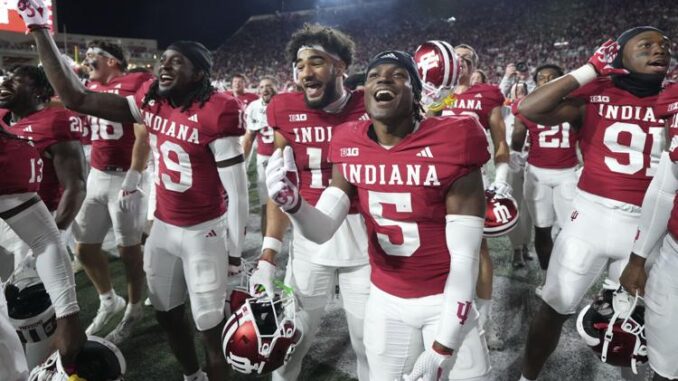
Trade deadline: Indiana Hoosiers football QB rejected an contract offer of $ 700 million with the…
As the trade deadline closes in on the college football landscape, news has surfaced that has left fans and analysts alike in a state of disbelief. The star quarterback for the Indiana Hoosiers, widely regarded as one of the most promising talents in college football, has reportedly turned down a staggering $700 million contract offer from the university. This unprecedented decision raises eyebrows and sets the stage for significant discussions about the future of college athletics.
The $700 million offer, rumored to be part of a multi-year endorsement and performance-based contract, would have positioned the Indiana Hoosiers as a front-runner in the NIL (Name, Image, Likeness) era that has transformed college sports. With the potential for substantial financial gain, many expected the QB to jump at the opportunity to secure his financial future while still in college.
While the specifics of the quarterback’s reasoning remain unclear, sources close to the player indicate that there are multiple factors at play. First and foremost is the desire for the young athlete to focus on his team and continue developing his skills on the field. Many elite college players have indicated they want to remain locked in on their football career, emphasizing that team success and personal growth outweigh financial incentives at this stage.
Additionally, this quarterback is known for his strong desire to lead the Hoosiers to a conference championship and possibly a shot at the College Football Playoff. Turning down such a monumental offer could signify his commitment to the program and a belief that the Hoosiers can compete at a higher level.
The repercussions of this decision extend beyond the confines of the football field. The rejection of such a colossal offer could invigorate the Hoosiers’ fan base, showcasing the athlete’s commitment to Indiana. Fans appreciate a homegrown hero, and seeing a marquee player prioritize passion over profit could strengthen the community’s bond with the program.
Moreover, the news could have broader implications for recruitment. How recruits perceive the Indiana program and its ability to balance NIL opportunities with development and teamwork will be watched closely. The Hoosiers may now be seen as a destination for developing talent, especially among players who value team success over immediate financial gain.
This incident also highlights a critical turning point for the business side of college football. As the landscape continues to evolve, schools and players must navigate this complex world of endorsements and contracts. It opens important dialogues regarding player autonomy and the pressures that come with financial offers of this magnitude.
Furthermore, it raises questions about what the future holds for NCAA regulations surrounding NIL deals. As colleges strive to attract top-tier talent and compete with professional contracts, the ability to balance player welfare and institutional priorities will be keenly scrutinized.
The Indiana Hoosiers quarterback’s rejection of a $700 million contract offer stands as a remarkable event in the college football narrative. It reflects the changing dynamics of the sport, where financial incentives are often placed against team loyalty and personal growth. As the trade deadline closes and the focus shifts back to on-field performance, this young athlete’s decision will undoubtedly be a topic of discussion in the coming weeks and beyond, reshaping perceptions of college athletics in the years to come.

Leave a Reply